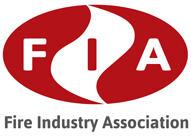The Fire Industry Association (FIA) has released the Advanced Installer unit of the new qualification pathway. The trade body reports that the unit forms one of the four of the qualification that must be undertaken to become fully qualified in installing fire detection and alarm systems, and is set to meet the level of education set out in the service standard, EN 16763.
The Advanced Installer unit will provide a base of theory that will help technicians to be more knowledgeable and better understand all aspects of installing fire all systems, covering BS 5839/IS 3218, the Construction Design Management Regulations (CDM) 2015, building regulations, documentation such as the log book, and installation methods.
This unit will further develop the knowledge and understanding gained in the Foundation course, the first unit of the qualification pathway. It will focus on how to apply fire safety law, codes of practice, and guidance for those working as a systems installer. You will then develop your comprehension of systems installation, systems testing, and fault finding. The course also covers the documentation necessary for installation and handover to other key stakeholders, including commissioning technicians, and the end user.
Completion of this unit with the Foundation Course in Fire Detection and Alarms, Environmental Course for Field Service Technicians, and Health and Safety Course will award the learner the FIA AO Level 3 in Fire Detection and Alarm Installation, Theory, and Regulatory Requirements.
The course is designed to teach learners not just regulations and legislation, but how this applies to their job roles in a practical sense so that they can apply what they have learnt.
The FIA adds that its qualification pathway is the only pathway of courses that will lead to a nationally recognised qualification set at Level 3 on the Regulated Qualifications Framework (RQF). This translates as a Level 4 on the European Qualifications Framework, meaning those undertaking the qualification will meet the level specified in the service standard EN 16763.
EN 16763, ‘Services for Fire Safety and Security Systems’ lays out the minimum levels of education that technicians should have. Although not mandatory by law, the standard specifies that those working on a system should be qualified to at least a Level 3 on the European Qualifications Framework.
All units listed are available to book now on the FIA website: https://www.fia.uk.com/training/training-course-browser.html.









